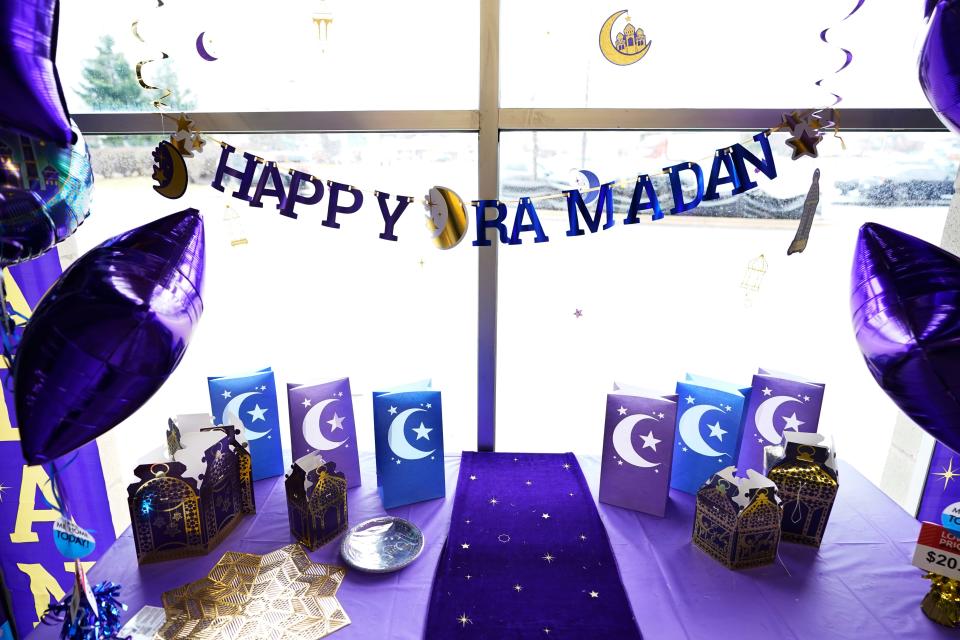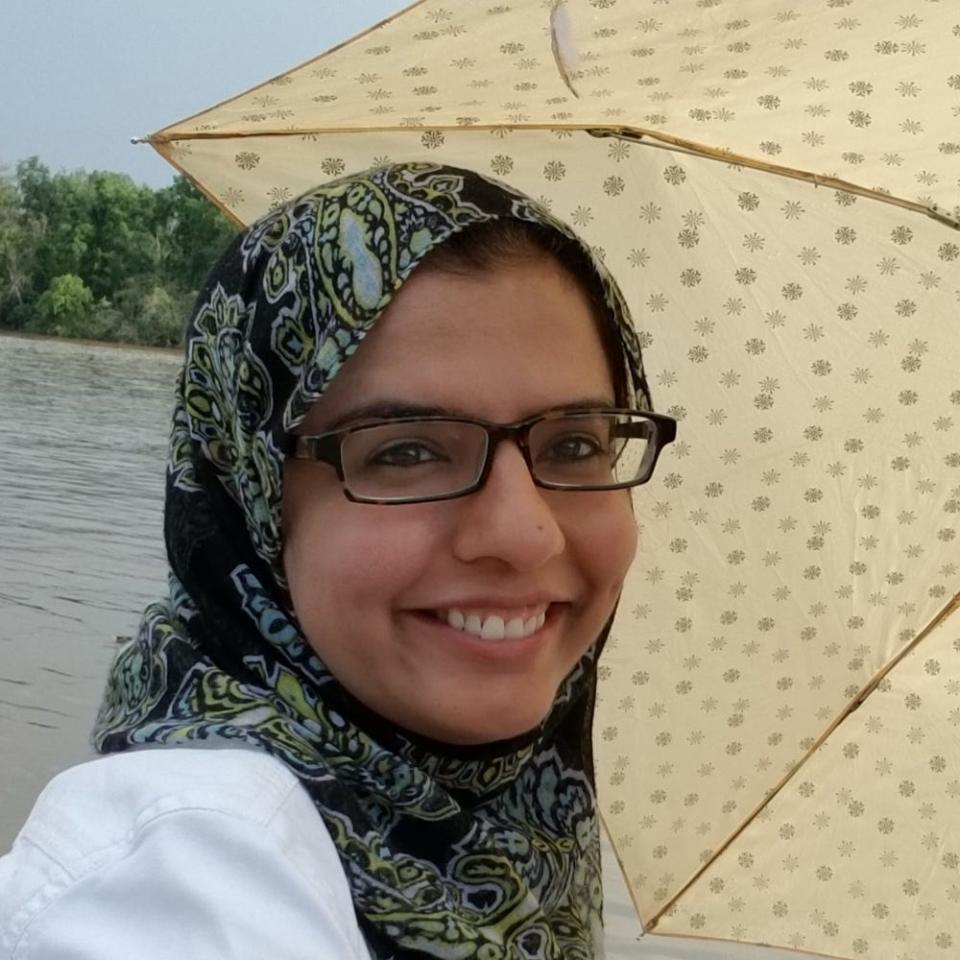Why do Muslims fast during Ramadan? To learn what we can do without – and what we can share.
If “Why do Muslims fast during Ramadan?” were a question on "Family Feud," the second most popular answer would be: “To feel what it’s like to be hungry.”
My family would be at a disadvantage. It’s the one answer I'd absolutely refuse to give standing up there next to comedian Steve Harvey with my hand over the buzzer.
Ramadan is the month when Muslims all over the world fast from food and drink between sunrise and sunset. We fast because it’s mandated in Islam – that’s the money answer. Nothing passes our lips, not even a sip of water. And for those who are smokers, well, they’re out of luck this month.
Muslims fast to build empathy for the less fortunate
The date of Ramadan changes from year to year because it's set using the lunar calendar. This year, Ramadan began March 22 and will continue through April 21.
Opinions in your inbox: Get exclusive access to columnists and the best of columns
From a young age we’re taught that we also fast to build empathy for the less fortunate, or gratitude for what have. It’s what we still teach our children today.
I’ve been fasting during Ramadan since I was in junior high, which was decades ago. Many of my friends started even earlier, in elementary school, fasting half days.
My earliest memory of Ramadan is the sizzle and buttery smell of my mom frying parotta, a crispy South Asian type of bread, in the pre-dawn hours. On weekends, my parents would take us to break our fast at dinner parties with tables laden with five or six dishes. Afterward, my sister and I would spend late nights in the mosque with friends, huddling in stairwells whispering and eating sweet snacks as the adults prayed.
How Ramadan has changed since my childhood
Some aspects of Ramadan have changed over the years. This month is now akin to Christmas. Homes are decorated with lights, wreaths are hung on the front door and there is even talk of presents.

The community dinners held at our mosque have doubled in size with tents set up outside even in the cold of winter. Attendees complain of long wait lines and not enough food. Some mosques even hire oversized dumpsters specifically for this month because of all the waste.
What hasn’t changed is that Ramadan, for many of us, is devoid of actual hunger.
Admittedly, the first few days of Ramadan are hard. My body is forced to adapt to a new eating and sleeping schedule.
Reflecting during Ramadan: As a Muslim, I'm reflecting on loss and grief during Ramadan, Islam's holiest month
What unites America?: We can agree that no one in this country should go hungry
Waking up at 4:45 a.m. and slow munching on avocado toast while sipping from a glass of vegetable juice, my stomach is barely able to keep up.
At night, my head hits the pillow close to midnight after checking off all the additional "rakats" – the standing, sitting and prostrating of worship – reading the Quran and going through the shopping list in my head of everything I want to ask of God.
Our brand of hunger during Ramadan is trivial
After that first week, my appetite shrinks. My stomach growls less, and the lethargy that comes from skipping lunch is a mere inconvenience. Some of us even do our best work, live our best lives, during those 30 days because we’re more focused, our minds sharper.
During those 30 days, we learn what we don’t want to admit: We consume far more than we need to. We may not be sailing yachts, but we live the luxurious life of having trouble deciding what to make for dinner because there are too many options.
What is Ramadan?: Why do Muslim people fast for the holy month? What you need to know.
Ramadan 2023: What to know about the Muslim holy month, Eid al-Fitr
Our brand of hunger during Ramadan is trivial, nonexistent even, compared with the constant hunger of those who stand in food pantry lines or have lost everything due to a natural disaster like the tornadoes in Mississippi or the earthquake in Turkey. The discomfort we feel this holy month doesn’t even come close to the hunger felt by millions of children in this country who eat their first and last meal of the day in the school cafeteria.
The lesson isn't that we’re eating less to feel hungry. We’re eating less to take stock of what our bodies can do without, of the excesses in our lives that could be shared or done without.
Opinion alerts: Get columns from your favorite columnists + expert analysis on top issues, delivered straight to your device through the USA TODAY app. Don't have the app? Download it for free from your app store.
The Prophet Muhammad (peace be upon him), who Muslims believe was sent the Quran, ate very little and gave away most of his food to feed others. For us, skipping one meal is meant to test our grit. The chains of consuming are hard to break, but not impossible, which is why Ramadan comes as a yearly reminder.
Before Ramadan started this March 22, I passed out chocolate to my weekend class of 8- and 9-year-old boys and girls in the basement of the mosque. Some students received two or three miniature Hershey bars in Easter wrapping. Two received none. I walked over to one student and gave her three large handfuls of chocolate, watching the incredulity of her classmates grow as the pieces piled up on the table.
I asked the two students who didn’t receive any candy what they were feeling.
Hungry. Jealous. Anger. Confusion. Alone.
I asked the children who received two or three bars if they knew how it felt to not receive any candy.
They shook their heads.
I asked the little girl with the pile of chocolate in front of her what she planned to do.
She gave away every piece but one.

Saba Ali is a reporter for the Poughkeepsie Journal. Follow her on Twitter: @MsSabaAli
You can read diverse opinions from our Board of Contributors and other writers on the Opinion front page, on Twitter @usatodayopinion and in our daily Opinion newsletter. To respond to a column, submit a comment to letters@usatoday.com.
This article originally appeared on USA TODAY: Why do Muslims fast during Ramadan? It's not only because of Islam

